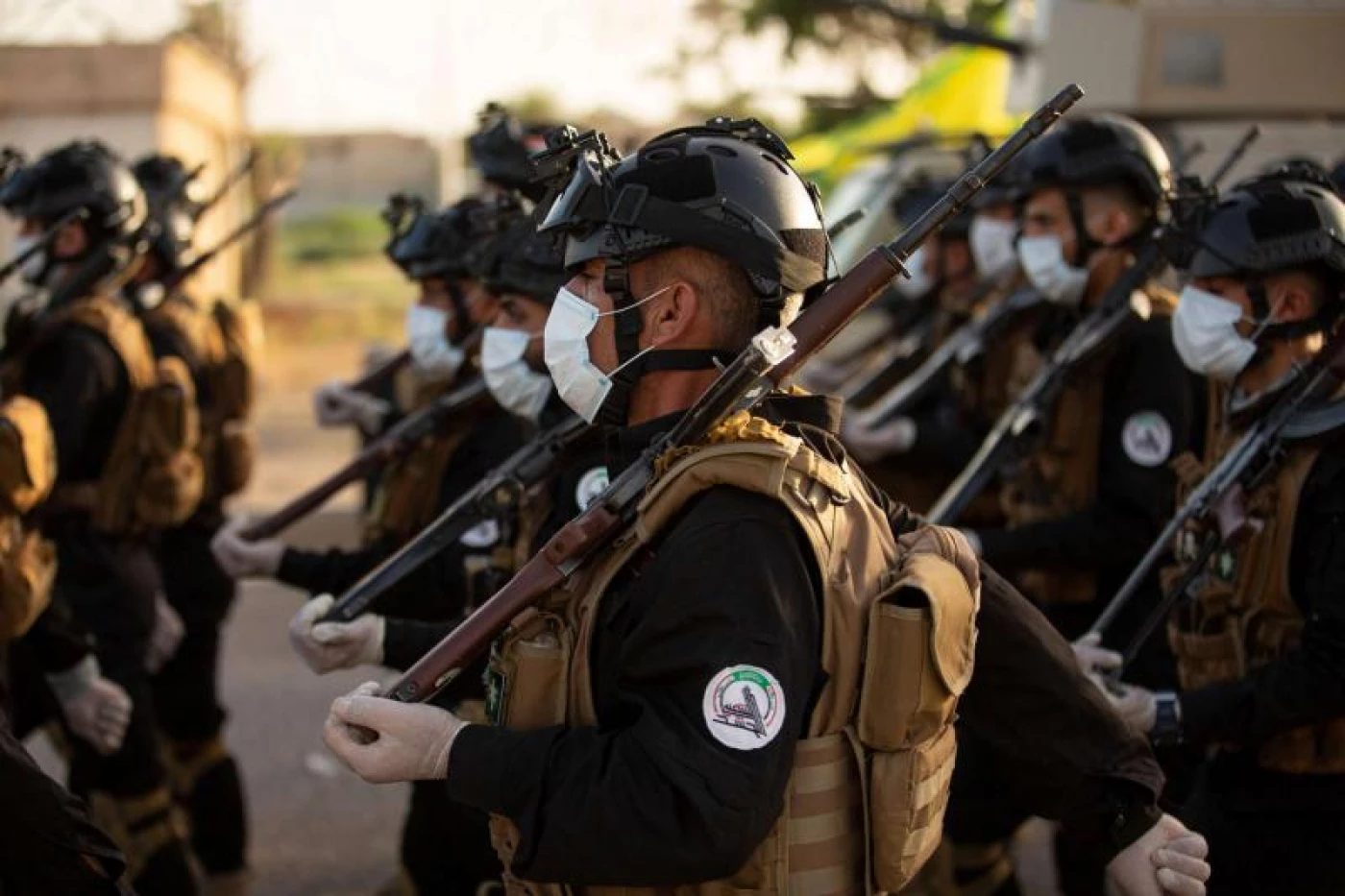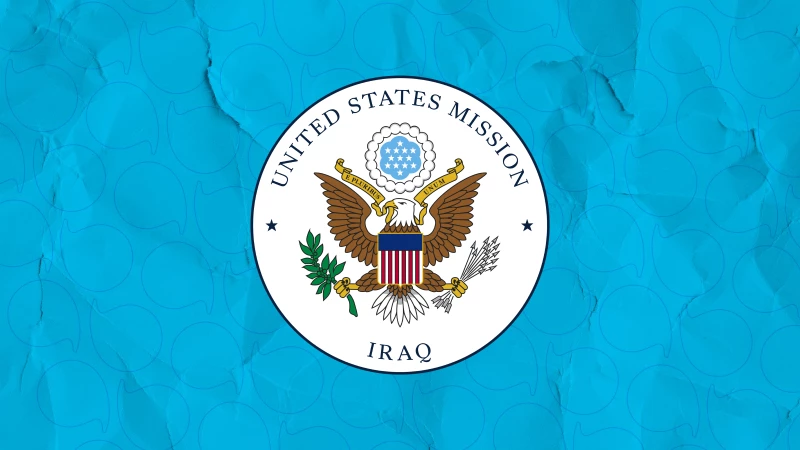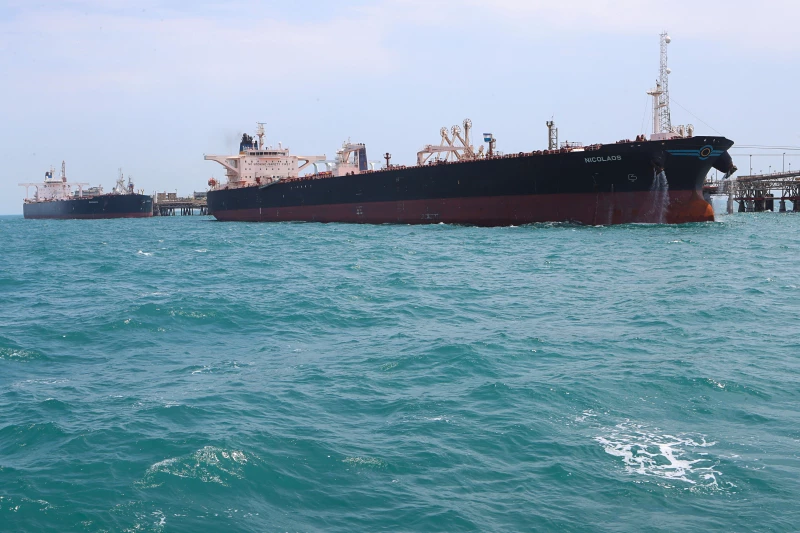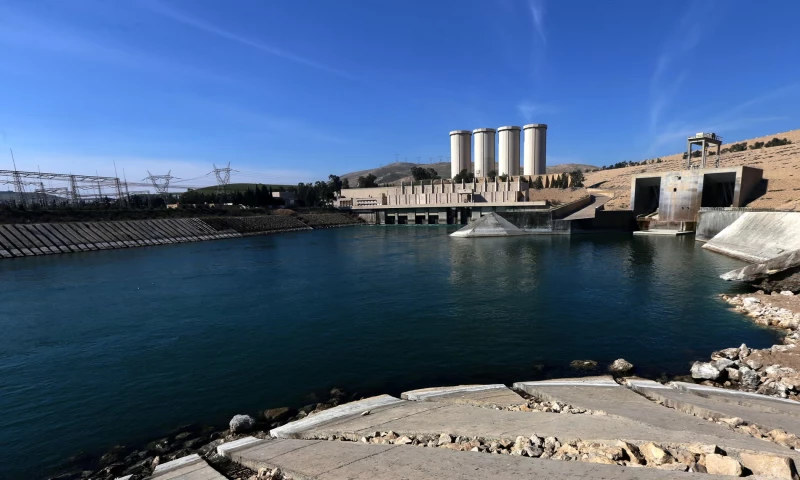ERBIL, Kurdistan Region of Iraq - With Iraq’s parliamentary elections set for November 11, fears are rising in Sunni provinces that armed factions are using different methods to gain as many seats as possible in these areas.
The seriousness of these groups is shown not only in their large number of candidates but also in their efforts to influence the election results by using various tools, including pressure from the Popular Mobilization Forces (PMF), according to researchers and political observers.
Political expert Nizar Haidar ruled out the possibility of these factions gaining many seats.
These groups “do not have wide popularity in Sunni provinces due to their past actions. However, they are trying to pressure tribal crowds to win their votes, and are also using public money, influence, and votes of security forces through threats and blackmail,” Haidar told The New Region.
He added that it is the responsibility of Iraq’s Electoral Commission to stop these anti-democratic practices. “The Commission must take action to rebuild trust in the voting process, especially regarding the misuse of public money and pressure on tribal forces,” he said.
Iran events weaken armed factions’ chances
Former Nineveh Governor Atheel al-Nujaifi said that while all parties are aiming to win more seats, armed groups have fewer chances this time compared to the provincial council elections.
“What happened in Iran will have a major effect on the votes of armed factions, not only in Sunni areas but across Iraq,” Nujaifi said.
Despite using both force and favors to gain support, these groups are unlikely to repeat their previous success. Their influence in Sunni provinces may shrink in the next elections, Nujaifi said.
Recently, Sunni areas have witnessed a wave of alliance-building by faction leaders. One of the latest alliances involved the Sadiqoun bloc, the political wing of Asa'ib Ahl al-Haq, led by Qais al-Khazali, teaming up with Tikrit tribes, including the Albu Nasir tribe, known for being the tribe of former president Saddam Hussein.
Observers say these groups are working to gain more control in local Sunni governments. Their strong participation in the elections, either through official alliances or hidden candidates, reflects that goal.
Repeating the Nineveh model
A political source revealed that Asa'ib Ahl al-Haq is fielding 24 candidates in Salahaddin province. It also has a second list formed through deals with tribal sheikhs and university professors. In Nineveh, the bloc is running with fewer candidates.
The source also told The New Region that the Badr Organization is joining the race strongly in Salahaddin and Nineveh, and has formed partnerships in Anbar.
Other groups like Kata’ib Hezbollah and Sayyid al-Shuhada are backing their own candidates in Nineveh and Anbar. The head of the PMF, Faleh al-Fayyad, is said to be the most powerful figure in Sunni areas. He is running in Nineveh, Salahaddin, and parts of Anbar through alliances with tribal sheikhs, local officials, and militia leaders.
The Babylon Movement, led by Rayan al-Kildani, also has an electoral list under its name. It controls the armed 50th Brigade. A second list tied to the movement includes tribal figures and academics, and is led by current Nineveh Provincial Council member Marwan al-Taei.
Intimidation, rewards, and double standards
Sources close to Iraq’s political scene say some weak Sunni leaders, tired from internal fights, have become Trojan horses for armed factions to enter Sunni areas and use the powers they gained from their roles in government.
For example, groups linked to the Coordination Framework now control key positions in Nineveh, such as the Provincial Council presidency, the second deputy governor, and the first deputy governor of Salahaddin.
Mustafa al-Dulaimi, a tribal sheikh from Anbar, said that armed groups use both rewards and threats. “They give tribal leaders jobs in the PMF and offer them more local power. But in the same areas, they also threaten people who don’t support them,” he said.
Speaking to The New Region, Dulaimi mentioned threats in several areas: the Nineveh Plains, south Mosul, Tikrit, Balad, Dujail, Samarra, and Baiji in Salahaddin, parts of Anbar, and towns and villages in Diyala. “Anyone who doesn’t vote for them faces pressure and threats,” he said.
He added that these groups force tribal leaders to collect voting cards from their members and families. “If they don’t, they are threatened with losing their roles or having their funding and weapons cut off,” he said.
Dulaimi also criticized what he called double standards.
“These groups can freely run in Sunni areas and win posts, but Sunni parties can’t run in Shia provinces. If they do, they face serious challenges. This is an unfair situation,” he said.
He concluded that the Iraqi government and the election commission are “very weak” in stopping the use of security forces and the PMF for campaign purposes. “What’s happening in Sunni areas is a serious violation that shows a plan to control decision-making in these cities,” he said.
Experts also warned that these armed groups aim to control strategic provinces like Nineveh, Anbar, and Kirkuk, which have large budgets and important resources such as oil.
Shadow lists and alliances
Political researcher Abdullah al-Hadidi said that if armed groups run openly under their names, they will not win many seats in Sunni areas.
“They are using their power in the Ministry of Education, the PMF Commission, and other government offices to create secondary lists. These include tribal leaders, academics, public figures, and leaders of tribal forces,” he told The New Region, adding that these groups are trying to repeat their “Nineveh experience” in other provinces to take full control over both security and administration, and make sure they have a legal presence there.


 Facebook
Facebook
 LinkedIn
LinkedIn
 Telegram
Telegram
 X
X



